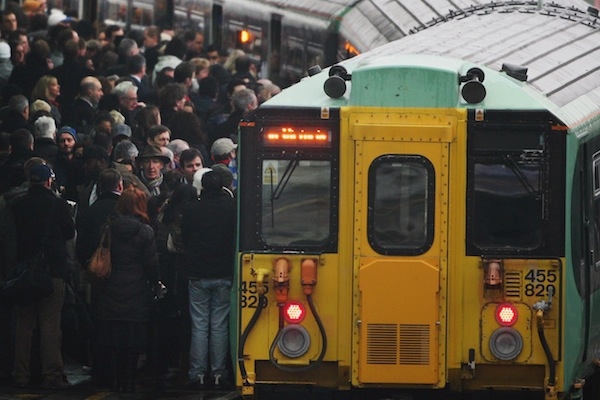Last month the Labour party moved two debates in the Commons pushing for Government to keep running the important East Coast Main Line (ECML) rail franchise between London King’s Cross, Newcastle and Scotland. The state has run this service since National Express East Coast was hit by the downturn in 2008 when it became unable to make the necessary government repayments for operating the franchise. Tory ministers want to quickly see the franchise back in private hands.
Labour’s more vocal stance on rail has important undertones; the party is increasingly echoing the left-wing rail unions and the TUC in its policy towards the sector. The party’s belief that Government should be directly operating railways again reflects a huge policy reversal, the likes of which would have been, until recently, unimaginable.
They key issue here is that the line’s success has nothing to do with the fact that the government has recently been in charge. Importantly, the need to make a return and to meet franchise contract deadlines drives a private sector operator to constantly improve and get things done as will be the case when it is re-let. The natural tendency of public service administrations to defer and constantly reconsider options tends to mean that little actually improves.
So what of a Tory policy opportunity on rail? A positive backcloth and potential for better railways policy is now very clear. Since 1993 passenger traffic has doubled, growing faster than all other European countries. This growth is expected to double again by 2030 and passengers are now footing more of the railways’ bill as against the wider taxpayer.
More people are travelling by train than at any time since the 1920s on a rail network almost half the size and enjoying the highest levels of safety on record. Tories should claim some credit for this extraordinary turnaround as the roots for it lie with allowing more private sector innovation in running the railways, from ticketing to more suitable rolling stock.
Similarly, vital rail competition, albeit still limited, has played a key role in rejuvenating the East Coast Main Line and this must be commended and extended. Private non-subsidised and non-franchised ‘open access’ rail operators such as Grand Central and First Hull Trains compete successfully with the state run franchise ‘East Coast’.
New CPS research show how long distance rail competition has delivered lower fares, more routes (to predominantly Labour areas), higher revenues, happier passengers and greater rail use without threatening the viability of the franchise holder to pay its premiums back to Government. In fact, East Coast has been paying a higher premium year on year. If ever a vindication of rail privatisation was needed on its twentieth anniversary then this is surely it.
Ed Miliband is taking the wrong track on rail policy. Private sector franchises facing more private sector competition is the key.
Tony Lodge is a Research Fellow at the Centre for Policy Studies and author of Rail’s Second Chance – putting competition back on track, published this Spring by the CPS.






Comments